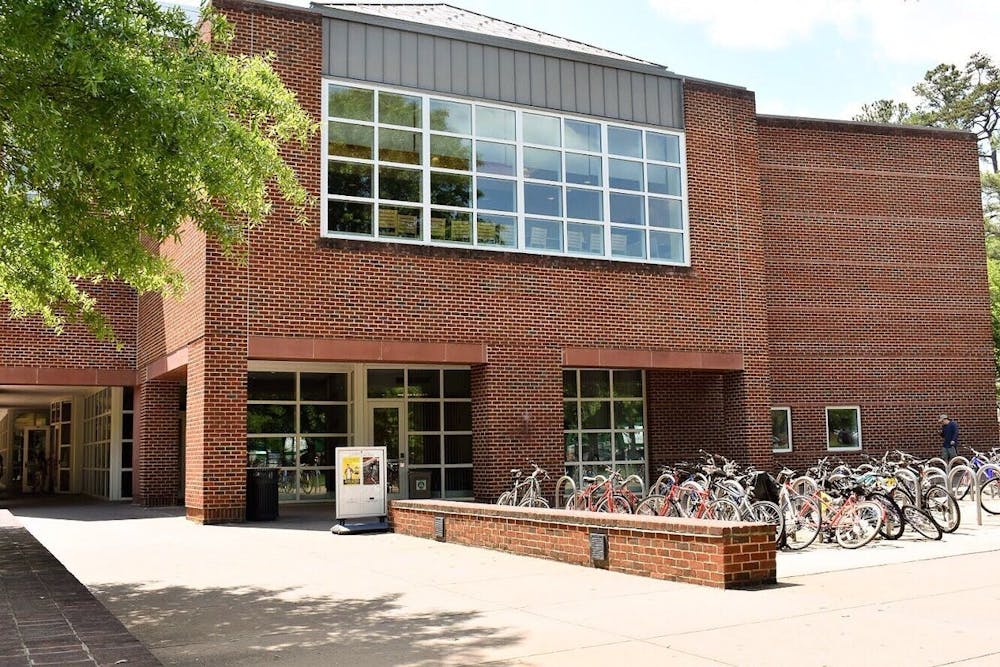Not only is Aramark the University’s dining services vendor, but it is the second largest meal provider in the United States. Throughout the school year, thousands of University students eat breakfast, lunch and dinner sold by the company, and millions eat their food in dining halls across the country in national parks, corporate headquarters and even prisons.
The rise of mass food production has taken a toll on the Earth’s climate, and some foods produce more damaging environmental effects than others. The biggest offender is livestock raised for meat and dairy products. Water pollution, greenhouse gas emissions and toxic waste arising from mass meat and dairy production threaten our ecosystems and climate. Cows release methane from their digestive tracts, which is a climate change pollutant 84 times more potent than carbon dioxide in the short term. To avoid the worst effects of climate change, the United Nations and experts around the globe have called for the world to limit demand for greenhouse gas-intensive foods through shifts to healthier and more sustainable diets. The University can and should be part of that solution. Although our dining services have taken impressive strides towards sustainability, Aramark stands in the way of what could be our biggest step towards climate-healthy practices.
Due to Aramark’s massive size, the company could have a huge impact by shrinking the climate footprint of its menus. By increasing the amount of fruits, vegetables, legumes and grains served and reducing the amounts of meat and dairy in meals, Aramark can drastically reduce climate pollution through its purchasing practices. However, the company’s recently released “sustainability plan” does not address the significant emissions produced by Aramark menus and makes no meaningful commitment to reduce climate pollution. We are deeply disappointed by this failure — we are some of Aramark’s youngest customers, and we will be the ones most impacted by a future filled with rising sea levels, droughts and fires caused by climate change. As individual students, our choices definitely help — we can choose to consume less meat and dairy, for example. But the food industry has to do its part alongside us, as their habits have sweeping consequences.
As major Aramark customers, Amnesty International at UVA believes the company should make an actual, defined commitment to reduce global warming associated with its food by 20 percent company-wide. They should increase the plant-based entrees they serve to 50 percent, while ensuring these are quality meals students actually want to eat. They should immediately make real cuts to the amount of climate-intensive foods they purchase. This would not affect the types of food being served daily, but merely limit portion sizes and constrict red meat products to fewer days of the week. And because promises without accountability aren’t worth anything, Aramark needs to publicly report their progress towards reducing climate emissions. Real change is hard, but it is necessary to save the only planet we have.
We care about the impacts on human rights that could arise from failing to adopt more sustainable food practices. Environmental rights are human rights, and climate change will increase refugees and disproportionately impact lower-income people who aren’t able to relocate to safer conditions as easily. The Cavalier Daily’s exposure of Aramark’s decision to furlough its employees following the University’s transition to online classes generated real results as University President Jim Ryan created an emergency fund to pay furloughed employees. We hope that this urgent matter will receive the same attention, especially during the first Earth Week in decades in which we have seen fish swimming through the Venice canals, animals roaming city streets and air quality in China improving to the point that its beautiful skylines are finally visible. These instances are glimpses into what our world would look like if we — as a community — decide together to make that change. Climate change is not reversible, and if we have learned anything from the global response to the COVID-19 virus, it is better to take action before it is too late.
Amnesty International is a global movement dedicated to fighting injustice and promoting human rights. In our chapter of Amnesty International at UVA, we organize events, fundraisers, and letter-writing and social media campaigns to advance Amnesty International's objectives and raise money for causes around the world and local partners in Charlottesville.
The opinions expressed in this column are not necessarily those of The Cavalier Daily. Columns represent the views of the authors alone.







